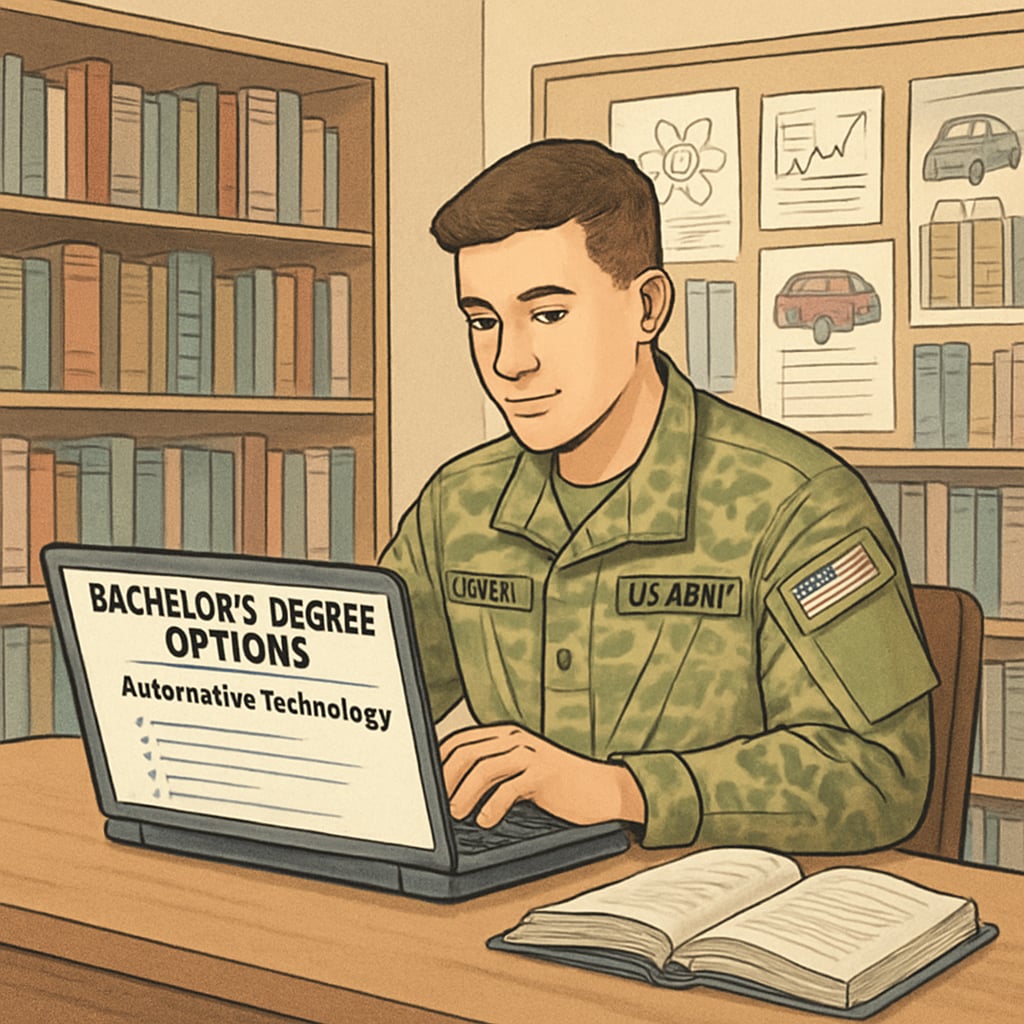For military personnel holding an associate degree in automotive technology, advancing to a bachelor’s degree is a rewarding step toward long-term career growth. This transition not only leverages existing skills but also opens doors to leadership roles and specialized fields. Key considerations include effectively utilizing credit transfers, selecting compatible bachelor’s programs, and aligning education with career goals.

Why Transition from an Automotive Technology Associate to a Bachelor’s Degree?
An associate degree in automotive technology provides a strong foundation in vehicle systems, diagnostics, and repair. However, pursuing a bachelor’s degree enhances this knowledge with broader technical, managerial, and analytical skills. For military professionals, this often means greater opportunities for civilian careers in automotive engineering, fleet management, and beyond.
Additionally, a bachelor’s degree can help military members qualify for higher-paying positions and leadership roles. According to the U.S. Bureau of Labor Statistics, occupations requiring a bachelor’s degree often yield higher median salaries compared to those requiring only an associate degree.
Understanding Credit Transfer: A Critical Step
One of the most important aspects of transitioning to a bachelor’s degree is optimizing credit transfer. Many institutions offer programs specifically tailored for military personnel, allowing them to maximize the use of their previously earned credits. This process reduces the time and cost required to complete a bachelor’s degree.
Here are some strategies for a smooth credit transfer process:
- Choose Accredited Institutions: Select universities with regional or national accreditation for seamless credit recognition.
- Leverage Military Experience: Many schools evaluate military training and experience for potential academic credit. Refer to the American Council on Education (ACE) for guidance.
- Consult Academic Advisors: Speak with advisors to identify transferable credits and ensure alignment with degree requirements.
Compatible Bachelor’s Degree Options
When selecting a bachelor’s program, military personnel should consider degrees that complement their automotive technology background. Some of the most compatible options include:
- Automotive Engineering Technology: Focuses on advanced vehicle design, manufacturing, and testing.
- Mechanical Engineering: Offers a broader scope, including systems design and robotics, applicable to automotive industries.
- Business Administration: Ideal for those aiming to manage automotive dealerships, service centers, or fleets.
- Industrial Technology: Combines technical expertise with management skills for manufacturing and operations.
By aligning their bachelor’s degree with career aspirations, military personnel can strategically position themselves for success in both civilian and military contexts.

Balancing Education with Military Commitments
Active-duty military members often face unique challenges in balancing education with service obligations. However, many universities offer flexible options such as online programs, part-time enrollment, and military-friendly policies.
Key tips for balancing education include:
- Utilize Tuition Assistance: Take advantage of military tuition assistance programs to reduce financial burdens.
- Plan Around Deployment: Opt for schools with policies that accommodate deployment or unexpected service requirements.
- Time Management: Create a structured schedule to balance coursework, service duties, and personal time.
Conclusion: A Strategic Step Toward Career Advancement
Transitioning from an associate degree in automotive technology to a bachelor’s degree is a strategic move for military personnel seeking career growth and specialized opportunities. By focusing on credit transfers, selecting compatible programs, and leveraging military-friendly resources, this journey can be both efficient and rewarding. Whether aiming for leadership roles in the automotive industry or exploring engineering and business fields, a bachelor’s degree provides the foundation for long-term success.
Readability guidance: Use short paragraphs and bulleted lists to enhance comprehension. Include transition words for flow and ensure technical terms are explained for accessibility.


